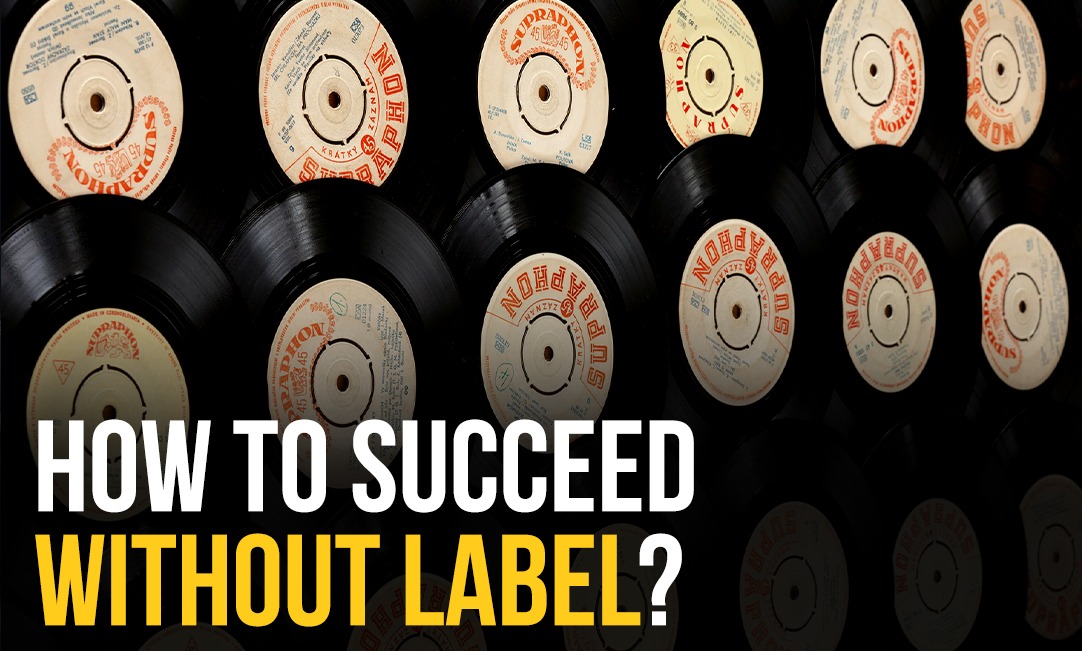How to succeed without label?

The method through which music is transmitted to the listener is known as music distribution. To sell to stores, distributors often enter into agreements with record labels. Digital distribution, on the other hand, altered everything by eliminating the middleman and allowing artists to distribute music directly to online stores while keeping 100% of their income. To reach all of your potential followers, you need to use digital distribution as an artist. Your visibility will upsurge as a result of smart distribution.
In comparison to other businesses, the recording industry has only been around for a short time. And a lot has changed in the last century or so in terms of recorded music sales. The most significant developments have occurred in the last two decades. Particularly in the last five years, we've been pushed exponentially into a strange new world. We've previously gone over the bumpy road that is digital music distribution. Today though, we'll focus on one facet of current music distribution: self-publishing – specifically, how to self-publish your music and get it out to people without the help of a label.
The 5 ways through which the artists can distribute their music without a label is mentioned here:
1. Take it to the next level (performing rights organization)
If you're serious about self-publishing music and earning royalties, one of the first things you should do is join a performing rights organization (pro). Pros principally pledged that you will be paid royalties for your music whether it is played in public places (restaurants, shops, etc.) or when it is performed live.
2. Consider contacting a publishing administrator.
Consider hiring a publishing administrator if you'd rather have someone else manage the details of publishing. These companies manage your music's publishing, marketing strategy, and distribution rights for a modest price. You won't have to publish your music, and each sale or performance of your copyrighted material will be suitably compensated. Publishing administrators include companies like TuneCore and CD baby. CD baby pro, for example, keeps 15% of any income they claim on your behalf. You can get money for streams, downloads, Youtube plays, and even ringtones by using these sites to distribute your music across all digital platforms (Spotify, Apple Music, Amazon Music, YouTube, and so on).
3. Make it a point to self-publish your songs.
It's a good idea to organize a legal business corporation to handle fees, taxes, and transactions if you're going to be your publisher. In this manner, you can keep your personal and company finances separate. Furthermore, it's possible that you're not the only one in command. For example, a band might have four members. Each member may have a distinct function to perform in the composition and recording process, or everyone may contribute equally. You can easily sort out the division of labor, compensation, and possible member changes by keeping everything on the books. The most frequent sort of corporate structure for publishing your music is a limited liability company (LLC). These can be set up online through companies like legal zoom or with the help of an experienced lawyer.
4. You want to get some exercise
Even though the bulk of the music is consumed digitally these days, many still prefer collecting physical copies of songs and albums. Previously, professional recording studios were responsible for physical creation and distribution via their own methods. Unsigned musicians had no genuine way of manufacturing or selling records back then. Some business astute entrepreneurs have seen an opportunity in creating these tools in recent years, opening the way for artists of all levels. When it comes to publication administration, we've already highlighted CD baby. The company also manufactures and distributes CDs and vinyl records. CD baby can easily get your album on shelves because of its ties to thousands of physical stores.
5. Copyright your work.
Make sure your music is copyrighted, regardless of how you want to publish or distribute it. You already hold the copyright to your tunes if you publish your music. In reality, copyrighting your music is more of a precaution than anything else. While you theoretically own your music when you make it, if you don't claim a copyright, you won't have access to certain legal remedies. Consider the case where someone "Steals" your tune or lyrics. Your music may have been written first, but in this situation, the other artist's song is copyrighted while yours isn't.
Conclusion
Labels are, in fact on their way out. Newspapers, infomercials, and talk radio, for example, will all be around for a bit longer. However, as DIY musicians take control of their music, their prominence is fading. While you'll still have to pay to publish your music, these fees are minimal when compared to what companies take from even the largest musicians. If you're an ambitious musician, songwriter, or producer, investing in studios for your and your career's progression and improvement is always a sensible choice, and MIX Recording Studio is the one-stop solution for all your demands.